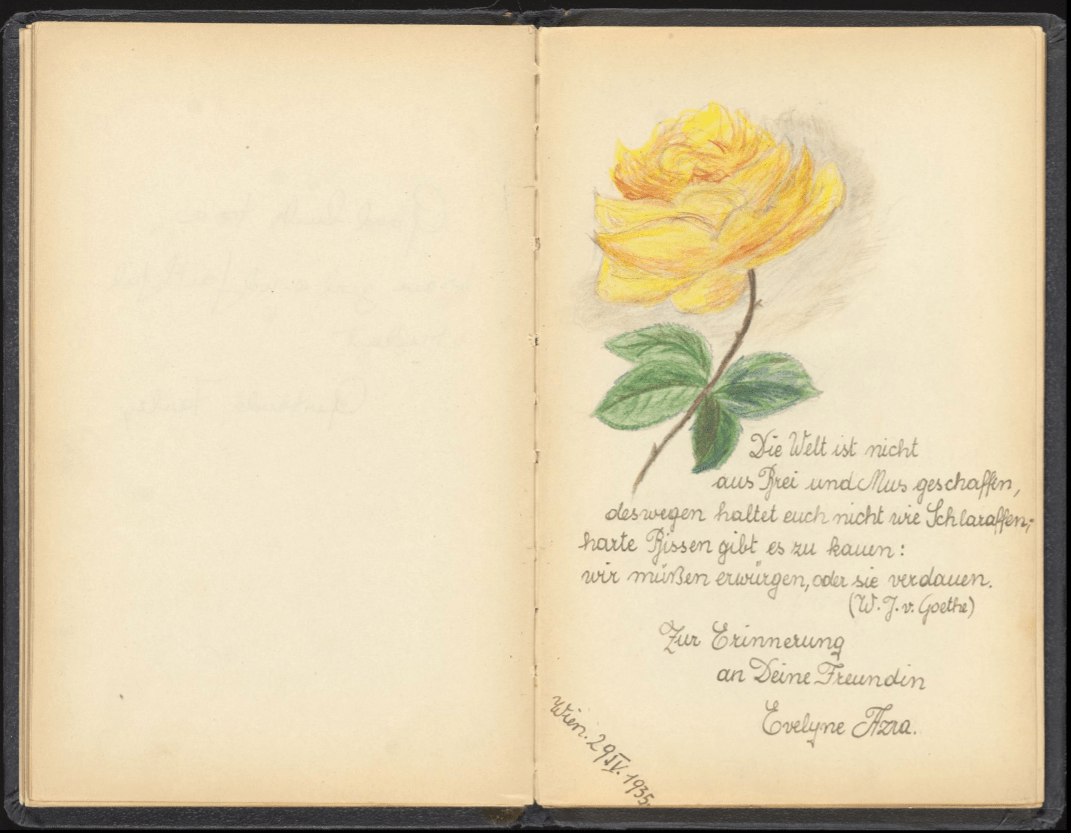
Writing is recognized by psychologists as an effective tool to process moments of trauma and to build resilience. In reaction to their diminishing freedoms and prospects, Jewish victims of Nazism also reached for the pen and often used poetry to explore their changing realities. The tone of such poems in the PMJ volumes ranges from pensive and melancholy to trenchant and even humorous. The poems’ authors take up issues of immediate relevance to their circumstances, including emigration, the yellow star, experiences in a camp, and death.
